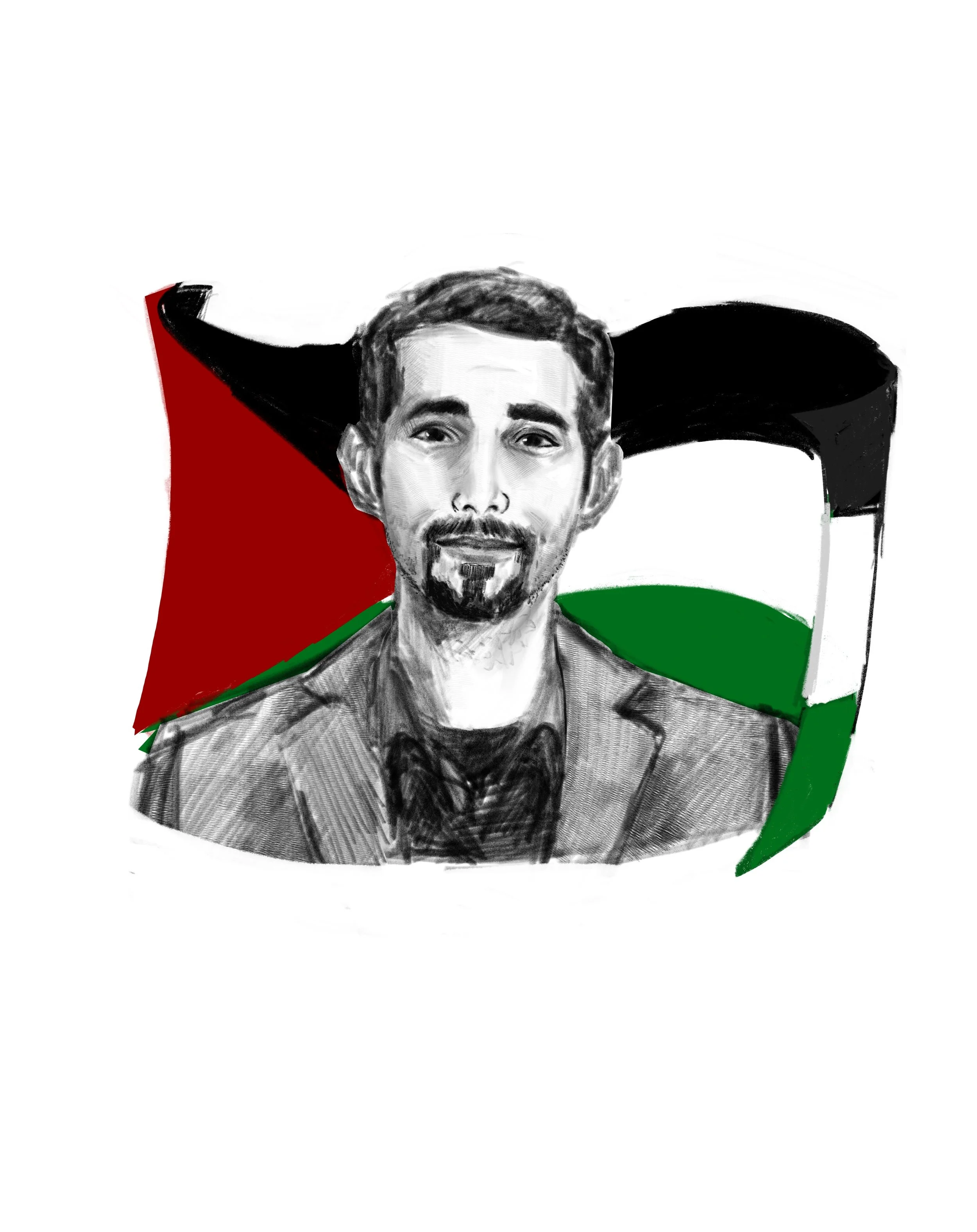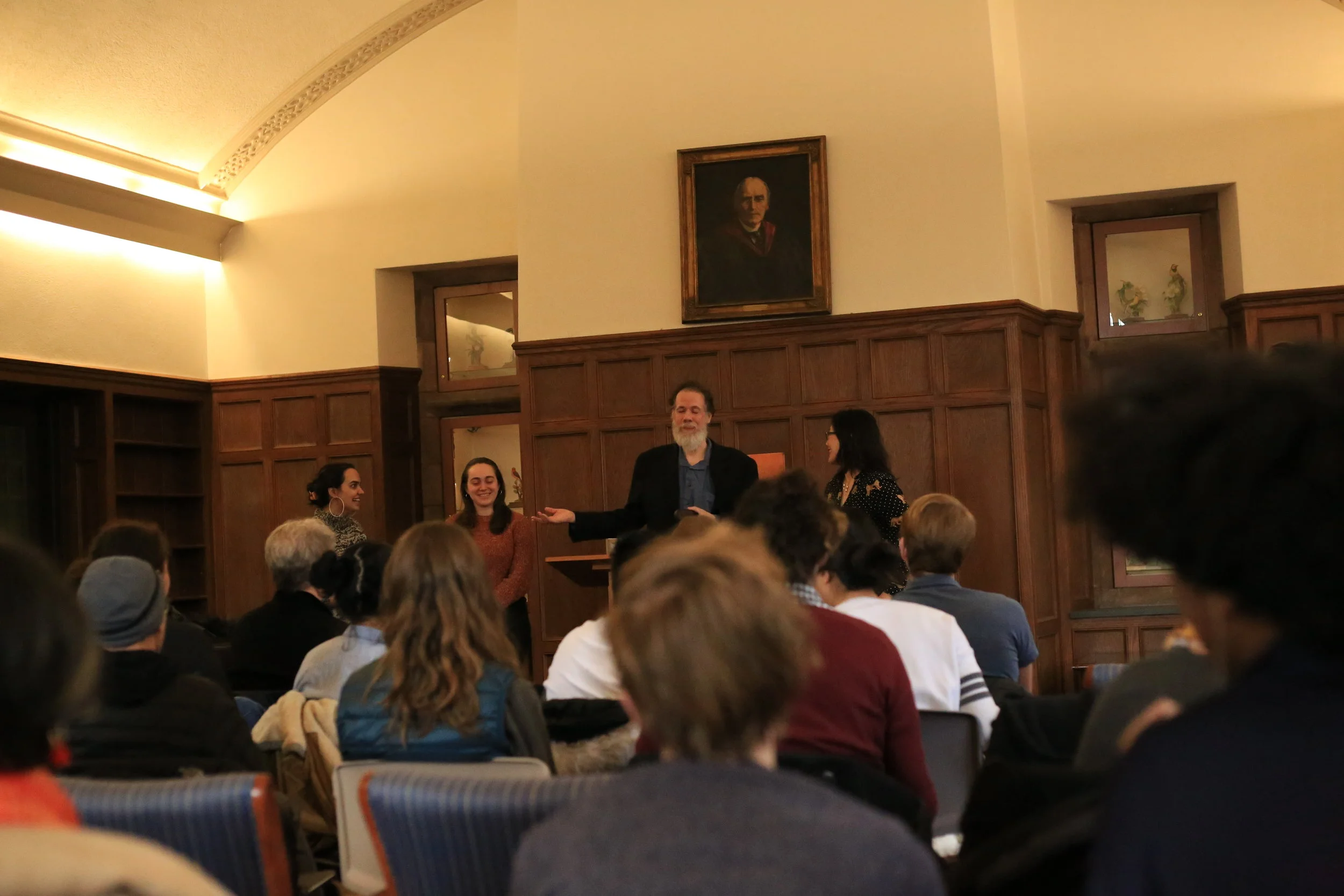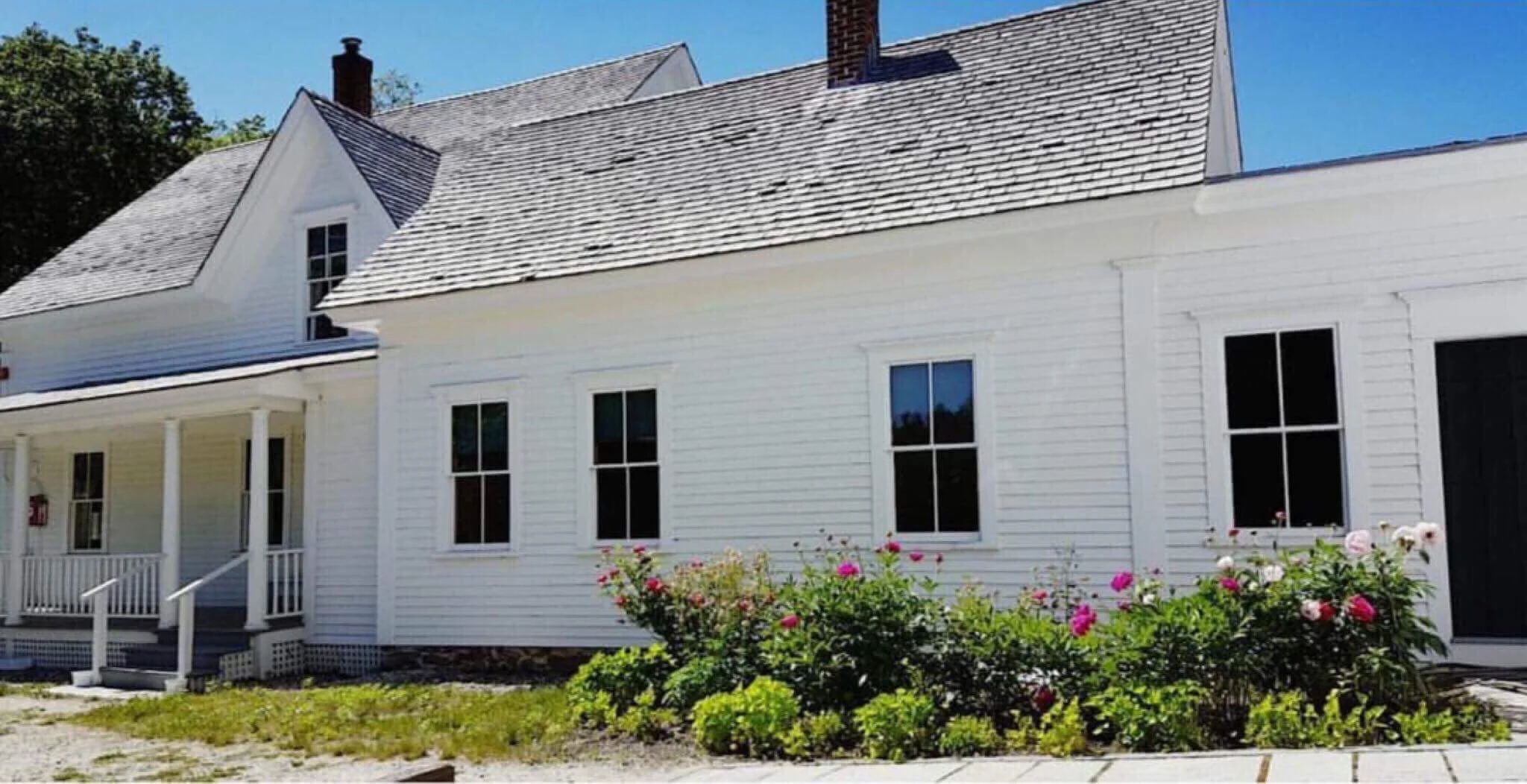Graphic by Cat Alexander ’28
By Sarah Grinnell ’26
Books Editor
Trigger warning: this article contains mentions of genocide, violence, and death.
Mosab Abu Toha began his talk at the University of Massachusetts Amherst with a sobering statement: “Today, September 16, 2025, Israel killed 110 people in Gaza.”
What perhaps made the number given by Abu Toha most harrowing was our prescient awareness as an audience that it would only continue to climb: That, by the time this article has been published, hundreds more refugees will have been killed at the hands of Israel.
A Palestinian poet, short story writer and Pulitzer Prize-winning essayist from Gaza, Mosab Abu Toha has been using poetry to document the atrocities committed against the Palestinian people since the release of his debut collection in 2022, “Things You May Find Hidden in My Ear,” reminding us that the fight for Palestinian existence has been going on far longer than since Oct. 7, 2023.
Sponsored by various departments at UMass Amherst, ranging from the Political Economy Research Institute to the Asian and Asian American Arts and Culture Program of the Fine Arts Center University Libraries, “Poems from Gaza: An Evening with Palestinian Writer & Librarian Mosab Abu Toha” was far more somber than celebratory, haunted by an overwhelming sense of absence. Indeed, the poems which Abu Toha chose to read represented chilling time capsules of what is no more: poems which continue to author their own obsoletion.
As Abu Toha repeatedly reminded the audience, many of the people and places he wrote about in 2021 and 2022 simply do not exist anymore. Whether that is Refaat Alareer, the Palestinian writer and poet who inspired Abu Toha’s poem “A Request: After Refaat Alareer,” who was killed in an airstrike in December of 2023. Or Abu Toha’s “many friends and relatives who were killed and buried under the rubble,” to whom he dedicated his poem “Right or Left.” Even the Edward Said Public Library in Gaza, which Abu Toha founded, is now reduced to rubble.
When prefacing “We Are Looking For Palestine,” Abu Toha observed this self-prophesying nature of so many of his poems.
As he put it, “Sometimes I write things out of my trauma, and now they are happening. Palestine is searching for us. People are buried under the rubble of their houses.”
But while Abu Toha’s reading seemed to reflect an overwhelming futility of language — indeed, he told the audience, “I do not know what is the value of words in the face of this genocide” — the question-and-answer portion of the evening also attested to the integral role that poetry is playing in bearing witness to the atrocities that governments around the world are attempting to turn away from.
The Q&A began as a conversation between Abu Toha and George Abraham, the Palestinian American poet and writer-in-residence at Amherst College, where they discussed the written word’s ability to resist what Abraham termed “memoricide.” While Abu Toha noted, “My poetry did not save the lives of my loved ones,” it does have the ability to “save their stories.”
“It is my way to show you what you are not seeing in your mainstream media,” he explained. As poems like “We Are Looking for Palestine” demonstrate the loss not just of life but the erasure of existence — of Palestinians’ houses, neighborhoods, possessions — Abu Toha’s work shows how poetry becomes a way of resisting such “memoricide,” to fill in some of the absences through a commitment to keep “looking for Palestine.”
In the vein of bearing witness, a particularly powerful moment came in the form of Abu Toha playing recordings on his phone of airstrikes he experienced while still living in Gaza. For a few minutes, Bowker Auditorium was filled with the sounds of booms and shots. Yet this could only capture a fractional facsimile of the horror Palestinians are experiencing on the ground.
“So what can we do?” This was one question asked during the Q&A session, and is perhaps the question on the mind of many Mount Holyoke students. Abu Toha put it quite simply:
No matter what form our action or activism takes in this time — donation, organization or simply uplifting the words of people like Abu Toha — the important thing is that, at the end of all this, “Every one of us should be ready to meet a Gazan child.”
Karishma Ramkarran ’27 contributed fact checking.







